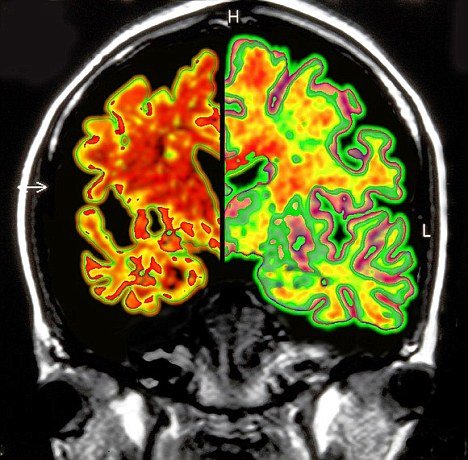
British researchers involved in Oxford Project to Investigate Memory and Ageing (OPTIMA), which studies the causes of dementia, have found that B vitamins supplements could slow shrinkage of the brain and the rate of cognitive decline.
In 2011, the researchers recruited 270 elderly people with memory problems and gave them Vitamin B tablets – folic acid (800 micrograms), B12 (500 micrograms) and B6 (20 milligrams).
The supplements were found to slow shrinkage of the brain by an average of 30% a year – and slow the rate of cognitive decline – in people with high blood levels of homocysteine. Raised levels of this amino acid can increase the risk of developing Alzheimer’s disease three or four-fold.
By regulating homocysteine with B vitamins, the British researchers showed for the first time it is possible to slow the progress of the disease, if the treatment starts early. More trials are needed to test whether continued treatment can delay its progress indefinitely, but B vitamins have been shown to be as good clinically as Aricept (donepezil) – and better in that they slow the disease progression rather than ease the symptoms.

There is no way of knowing who is predisposed to Alzheimer, apart from extremely rare familial forms of the disease.
But those with memory problems should have their homocysteine measured and be started on B vitamins, under medical guidance. Normal dietary intake isn’t enough. One (200ml) glass of semi-skimmed milk contains 2.5 micrograms of B12, and most manage to eat five micrograms a day. But we do know people with high Vitamin B intakes are less likely to develop dementia, so every little helps.
Large-scale studies are needed to see if nutrition and exercise can slow the conversion of memory impairment to Alzheimer’s disease. The researchers also need to know if they improve the response to drugs such as donepezil.
For OPTIMA, the next step is a trial of 1,000 people with MCI to see if B vitamins prevent the conversion to dementia over a two-year period.